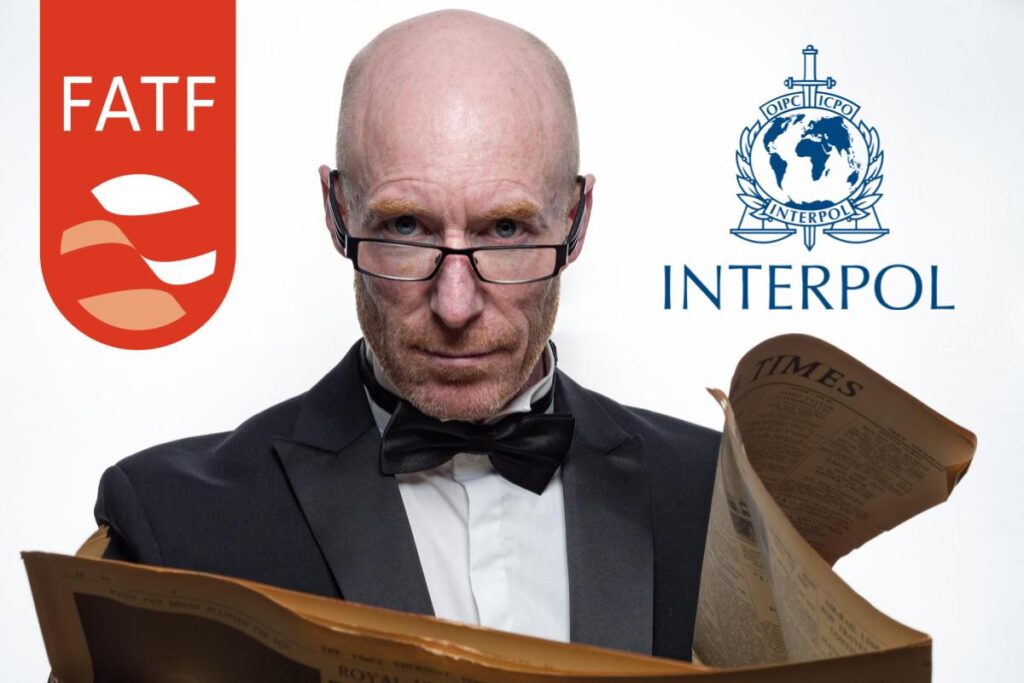Experts examine mechanisms to prioritize cross-border tracing, seizure and confiscation of criminal assets. The Financial Action Task Force (FATF) and INTERPOL have launched a joint initiative to deprive criminals of their dirty money, marking a turning point in global efforts to recover illicit assets.
While asset recovery should be a key pillar of a country’s approach to combating money laundering and terrorist financing, countries intercept and recover less than one per cent of global illicit financial flows, according to estimates by the United Nations Office on Drugs and Crime. Stolen assets are often moved out of countries quickly and channeled to or through multiple countries, rendering the process of asset recovery complex and requiring lengthy international cooperation.
The first ever FATF-INTERPOL Roundtable Engagement (FIRE) event gathered 150 high-level experts who highlighted the pressing need to:
- promote national policies and actions that prioritize the tracing, seizure and confiscation of criminal assets;
- enhance operational cooperation at the national, regional and international levels;
- increase effective information sharing among public authorities and with the private sector.
.
.
In a joint drive to reinforce and mobilise the community of global experts, the conference (held on 12 and 13 September) brought together law enforcement agencies, financial intelligence units, asset recovery offices, prosecutors, policy makers, international organizations and private sector industry leaders.
Opening the event, Mr K Shanmugam, Singapore’s Minister for Home Affairs and Minister for Law, emphasised the important role that INTERPOL and the FATF play in the global fight against transnational crime, money laundering and terrorism financing. Minister Shanmugam reaffirmed Singapore’s commitment to continue contributing to the important work of the FATF and INTERPOL. He also underscored how close international collaboration and strong public-private partnerships can bring about better outcomes in asset recovery.
“Increasing the visibility and priority of asset recovery at national level sets the tone for all stakeholders, sending a clear signal that we are acting to cripple organized crime syndicates, better protect society and contribute to sustainable economic growth. By catalysing global efforts, this exciting FATF and INTERPOL initiative can make an impactful lasting change in the way we go after the proceeds of crime,” said FATF President T Raja Kumar.
INTERPOL Secretary General Jürgen Stock said: “The magnitude of illicit profits, and the velocity at which billions are moving across borders, is deeply worrying. Organized crime groups are undermining global financial systems and inflicting huge losses on businesses and individuals alike. We must do more to deliver the significant operational impact that is needed today. By ambitiously pursuing every solution, every piece of actionable data, we will bring these illicit flows out of the dark and back to the legitimate economy.”
Participants agreed that a stronger understanding of the global financial crime landscape, especially in relation to cyber-enabled financial crime, is central to efforts against illicit flows.
Delegates welcomed the initiative by FATF and INTERPOL to reinforce international law enforcement and judicial networks that work on asset recovery and the tools available, including the pilot of INTERPOL’s global stop-payment mechanism, the Anti-Money Laundering Rapid Response Protocol (ARRP). They also agreed on the need to strengthen the FATF’s Standards so that countries are better equipped to act effectively at every stage of the asset recovery process.
Through a series of plenary and workshop sessions, experts looked at the strategic and operational changes required at national and international level to ignite asset recovery and take the profit out of crime. These changes include a shift in law enforcement perspectives and culture, enhanced international networks and tools, and stronger legislation and global standards against money laundering.
.
September 13, 2022 Published by The Financial Action Task Force.







